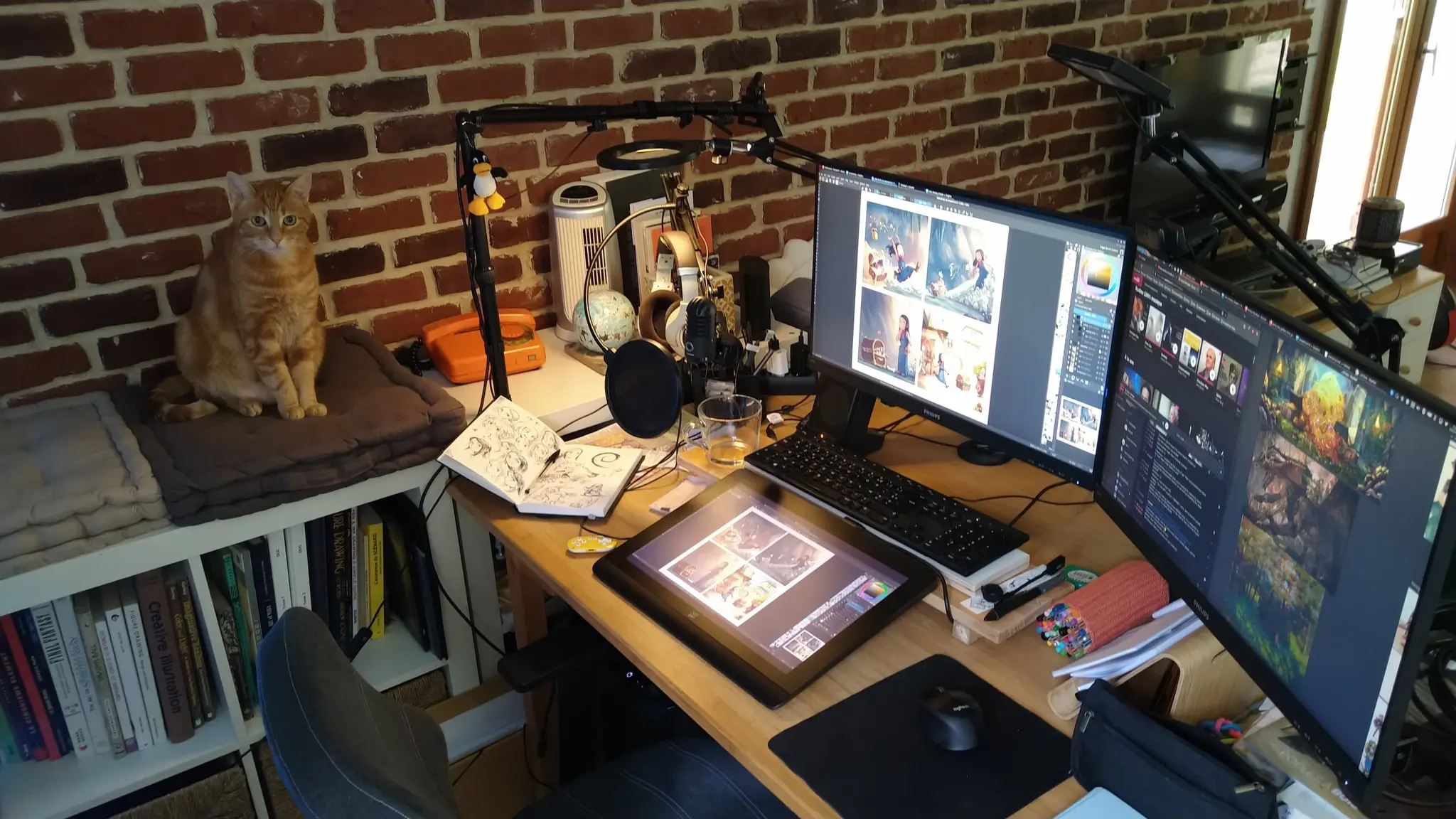- 7 Posts
- 25 Comments
It appears so.

 6·5 months ago
6·5 months agoIndeed, protocol is independent from implementation language, but that isn’t the question at hand.
Do you know whether Beehaw will still federate with the lemmyverse (and therefore the rest of us) after moving to Sublinks?

 9·5 months ago
9·5 months agoThat could also mean client API-compatible, so Lemmy apps would work with it, which doesn’t address federation.

 14·5 months ago
14·5 months agoWill it federate with Lemmy? I would miss you folks.

 88·5 months ago
88·5 months agoWho cares? It’s run by reactionary incels, transphobes, and racists.
Wait until you find out who runs Lemmy development.

 5·5 months ago
5·5 months agoHow to turn them square?
I don’t think yt-dlp has built-in image cropping, so it’s just going to download thumbnails in the resolutions provided by the server. (See the --list-thumbnails option.) To crop what you download, consider a tool like ImageMagick.

 12·5 months ago
12·5 months agoI’m on Debian Stable (with a few backported packages) for both work and gaming. It’s not the most beginner-friendly distro, but I’m no beginner, and I love how low-maintenance it is. It just keeps on working.
I would like to try Qubes OS eventually. I don’t think it will be ready for gaming any time soon, but for privacy and security-minded isolation of components, I expect it’s tough to beat.

 27·6 months ago
27·6 months agoTheir download page doesn’t make this clear: Molly is not on F-Droid.
Instead, the Molly project hosts an F-Droid-compatible repository, which you can configure your F-Droid client to use in addition to / instead of the F-Droid repository. If you do this, the downloaded software will come directly from the Molly developers, not from F-Droid.
Some people avoid this because it loses a layer of oversight. Others prefer it because it avoids a potential attack vector. You’ll have to decide for yourself whether it’s something you want to do.

 1·6 months ago
1·6 months agoThe Free Software Foundation can make whatever definitions they want, but they don’t supersede regular English.

 2·6 months ago
2·6 months agoInclusive umbrella term. It means the software has to be both free and open source.
You are mistaken, but I won’t argue about it.

 3·6 months ago
3·6 months agoI’ve been thinking of OSS and source available as interchangeable.
Nope; they are distinct terms. Source-available is just a general way of saying that the source code can be (legally) acquired. It doesn’t meet the standards of open-source software (OSS) or Free Software, both of which guarantee certain rights and freedoms, such as permission to make and redistribute changes to the source code.
https://www.gnu.org/philosophy/free-sw.en.html#fs-definition
It’s understandable that it might be confusing, though, since some people use the terms casually without understanding that they have specific meanings, and since both phrases use English words that could be interpreted to mean something else. (For example, “free software” doesn’t mean software whose price is zero, and “open-source software” doesn’t mean software whose source code is published in the open.)
Edit to add: Like many English words, the context in which they are used affects their meaning. The field of software is such a context.
But now it kind of seems to me that free software is interchangeable with open source software. Is it just a matter of branding?
The two overlap, but are not exactly the same. The umbrella term FOSS evolved to encompass both, because there is so much overlap between them that having such a term is often useful.

 1·6 months ago
1·6 months agoIndeed. I clicked reply before your edit. Here is the key part of the quote you selected:
FOSS is an inclusive umbrella term for free software and open-source software.
That means Free software qualifies and FOSS, and Open-Source software qualifies as FOSS. It’s a broader category, not a narrower one.

 2·6 months ago
2·6 months agoDoesn’t FOSS refer to software this is both free and open source?
Not exclusively, no. It’s an umbrella term.

 4·6 months ago
4·6 months agoAnd FOSS is an umbrella term encompassing both Free software and Open-Source software.
I’m glad to see people taking interest in the meanings behind these terms. We all benefit from understanding them better.

 6·6 months ago
6·6 months agoI was replying to this exchange:
Could mean FOSS but they keep the trademark.
Sure, but that’s unlikely, given the wording. “Owner of the software” is fairly clear
The article’s text said, “Winamp will remain the owner of the software”. That does not, in fact, preclude giving it a FOSS license, nor does retaining a related trademark. GP was correct. They can make it FOSS and keep the trademark and copyright. I don’t see any reason to think it unlikely.
The creator doesn’t “surrender” their copyright, but someone can fork it and then have ownership of their version
Forking someone’s copyrighted work does not change ownership of the rights in any jurisdiction that I know of. If you meant “ownership” in a difference sense, like maybe control over a derivative project’s direction, then I think choosing a different word would have made your meaning more clear.

 21·6 months ago
21·6 months agodoesn’t look like FOSS, just open source.
Open-source software is FOSS by definition. Did you mean source-available?

 22·6 months ago
22·6 months agoThe open-source licenses that I’ve used don’t require surrendering copyright.

 11·6 months ago
11·6 months agoI’d recommend using a markdown editor, then either export it through a template,
This is what a static site generator does.
(I don’t know why jamstack has taken over that site, but the list itself seems to be intact.)

 6·7 months ago
6·7 months agoFor something interesting, I suggest Qubes OS.
For a reliable workhorse, I would suggest Debian.






I don’t understand this item listed under Long-Term Goals:
Does this mean porting their not-yet-created desktop environment to a BSD variant and Linux? Are they planning to abandon the Darwin kernel, or do they intend to maintain their DE on three different kernel/library stacks?